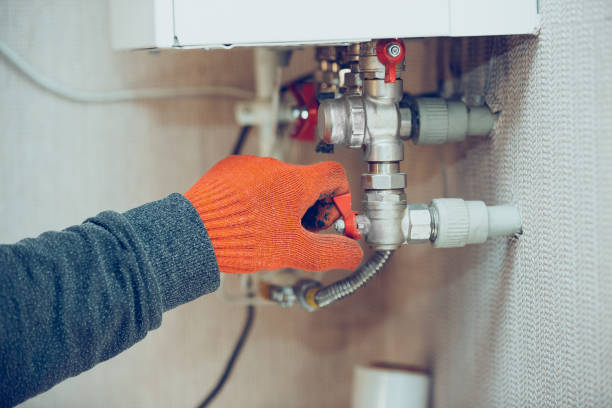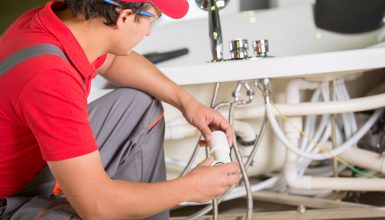Your Detailed Handbook to Dealing with Low Water Pressure in Your Home
Your Detailed Handbook to Dealing with Low Water Pressure in Your Home
Blog Article
Do you find yourself searching for critical info on 9 Reasons for Low Water Pressure in Your House?

Low water pressure in your house can be an aggravating issue, impacting every little thing from bathing to cleaning recipes. If you're experiencing weak water circulation, there are numerous feasible reasons and remedies to explore. In this guide, we'll talk about common reasons for low tide pressure and sensible actions to deal with the problem successfully.
Introduction to Low Water Pressure
Low water pressure happens when the flow of water from your faucets, showers, and other components is weak than common. This can make day-to-day jobs extra tough and much less effective. Comprehending the reasons for low water stress is critical to finding the appropriate remedy.
Typical Reasons For Low Water Stress
Pipe Obstructions
In time, pipes can become obstructed with natural resource, sediment, or particles, limiting the flow of water. This is an usual concern in older homes with galvanized steel pipelines.
Corrosion
Deterioration within pipelines can result in leakages and minimized water pressure. Corrosion accumulation can constrict water circulation, particularly in maturing plumbing systems.
Faulty Pressure Regulators
Stress regulators are responsible for keeping consistent water stress in your home. If they malfunction, it can cause low water stress or unequal flow throughout your home.
Municipal Water Issues
In some cases, the trouble lies outside your home. Metropolitan water system issues, such as main line leakages or upkeep work, can briefly reduce water pressure in your location.
How to Identify Low Tide Stress
Inspecting Taps and Fixtures
Begin by testing the water stress at different faucets and components throughout your home. If the issue is isolated to certain areas, it may indicate localized troubles.
Examining Pipelines
Check noticeable pipes for indications of leakages, deterioration, or blockages. Focus on any kind of uncommon sounds, such as banging or rattling pipes, which might show concerns within the plumbing system.
Consulting with a Plumber
If you're unable to pinpoint the source of low water pressure, think about employing an expert plumber to perform a comprehensive assessment. They can recognize underlying issues and recommend appropriate remedies.
Do It Yourself Solutions to Fix Low Water Stress
Cleansing Aerators and Showerheads
Natural resources can gather in aerators and showerheads, lowering water circulation. Get rid of and cleanse these parts regularly to enhance water pressure.
Flushing Water Heater
Sediment buildup in the hot water heater can limit circulation and decrease effectiveness. Purging the storage tank regularly helps remove debris and keep ideal performance.
Inspecting Pressure Regulator
Make certain that the stress regulator is functioning correctly. Readjusting or changing the regulatory authority can assist restore correct water stress throughout your home.
Cleaning Clogs in Pipes
For small blockages, attempt utilizing a plumbing snake or chemical drainpipe cleaner to clear obstructions in pipelines. Be cautious when using chemicals and adhere to safety and security guidelines.
When to Call a Professional Plumber
If do it yourself efforts fall short to solve the problem or if you suspect significant plumbing troubles, it's best to look for support from a licensed plumber. They have the experience and tools to address intricate problems securely and successfully.
Preventive Measures to Preserve Water Stress
Routine Upkeep
Schedule regular upkeep for your plumbing system to avoid issues such as deterioration, leakages, and obstructions. Attending to minor problems early can aid stay clear of even more significant repair services later on.
Setting Up a Stress Booster
Consider setting up a stress booster pump to enhance water stress in locations with regularly reduced circulation. This can be especially helpful for multi-story homes or residential or commercial properties with high-demand components.
Tracking Water Use
Bear in mind water usage behaviors and avoid overtaxing the plumbing system. Easy modifications, such as astonishing showers and laundry loads, can assist preserve ample water stress.
Final thought
Managing low tide stress can be frustrating, but determining the underlying causes and executing proper remedies can restore optimum circulation throughout your home. Whether it's cleaning up aerators, evaluating pipelines, or consulting with a plumber, taking proactive steps can ensure a stable supply of water for your daily needs.
FOUR WAYS TO FIX LOW WATER PRESSURE NOW
Turning on a shower or faucet only to find the water comes out in a sad, slow drizzle is never a good feeling. How exactly are you supposed to wash a pan or take a quick shower when it takes 10 minutes just to rinse off a little soap? The good news is that when your water pressure is bad, there's always a cause: typically one that can be easily fixed. Here are some of the most common causes of low pressure and what you can do to fix the issue:
DEBRIS AND MINERAL DEPOSIT BUILDUPS
If you notice low water pressure from just one or two of the fixtures in your house, the problem likely has to do with debris buildup. Water is full of minerals and other debris, all of which can accumulate in your pipes and on your fixtures. This can cause a blockage that affects how much water flows through. To fix this, try filling a small plastic bag with white vinegar, and use a rubber band to hang it around your showerhead or faucet. Let the head of the fixture soak for a few hours, and the vinegar should loosen the deposits.
WATER LEAKS
Leaks are another common cause of low water pressure. If water is flowing out of your plumbing through a hole or crack before it can reach your fixture, the pressure coming out of the faucet or showerhead will be lower. A plumbing professional is your best bet for finding and repairing a leak in your water supply pipes.
Leaks are another common cause of low water pressure. If water is flowing out of your plumbing through a hole or crack before it can reach your fixture, the pressure coming out of the faucet or showerhead will be lower. A plumbing professional is your best bet for finding and repairing a leak in your water supply pipes.
FOUR WAYS TO FIX LOW WATER PRESSURE NOW
Turning on a shower or faucet only to find the water comes out in a sad, slow drizzle is never a good feeling. How exactly are you supposed to wash a pan or take a quick shower when it takes 10 minutes just to rinse off a little soap? The good news is that when your water pressure is bad, there's always a cause: typically one that can be easily fixed. Here are some of the most common causes of low pressure and what you can do to fix the issue:
DEBRIS AND MINERAL DEPOSIT BUILDUPS
If you notice low water pressure from just one or two of the fixtures in your house, the problem likely has to do with debris buildup. Water is full of minerals and other debris, all of which can accumulate in your pipes and on your fixtures. This can cause a blockage that affects how much water flows through. To fix this, try filling a small plastic bag with white vinegar, and use a rubber band to hang it around your showerhead or faucet. Let the head of the fixture soak for a few hours, and the vinegar should loosen the deposits.
WATER LEAKS
Leaks are another common cause of low water pressure. If water is flowing out of your plumbing through a hole or crack before it can reach your fixture, the pressure coming out of the faucet or showerhead will be lower. A plumbing professional is your best bet for finding and repairing a leak in your water supply pipes.
Leaks are another common cause of low water pressure. If water is flowing out of your plumbing through a hole or crack before it can reach your fixture, the pressure coming out of the faucet or showerhead will be lower. A plumbing professional is your best bet for finding and repairing a leak in your water supply pipes.
A VALVE ISSUE
If you have low water pressure throughout your home, check your main shut-off valve to make sure it's completely open. You may also want to see if there's a pressure-reducing valve installed. If there is, have a plumber help you adjust the settings to get the pressure you're looking for.
OTHERS USING WATER
Believe it or not, your low water pressure could be caused by your neighbors. If you notice low pressure at certain times of day, it may be because you and the people living next to you have similar schedules - when everyone is showering at the same time, the pressure will be lower in every home. Low pressure throughout the neighborhood may also be caused by an issue with your municipal water supply. If that's the case, call the supplier to see if they're working on the issue.
https://www.rotorooter.com/blog/water-leaking/low-water-pressure-fixes/

I found that blog post about 4 Ways to Troubleshoot Low Water Pressure when doing a lookup on the internet. Do you know about anybody else who is in the market for the topic? Do not hesitate to share it. Kudos for being here. Kindly come visit our website back soon.
Get A Free Estimate Report this page